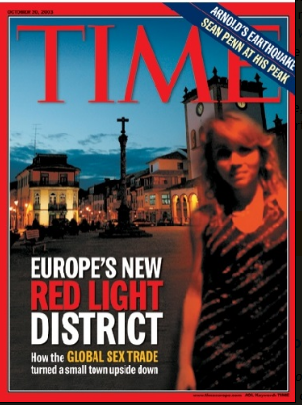«(...) The main drawback of paranoid nationalism is obvious. It is terrible for its targets, whether they be immigrants in Tunisia or Ukrainians whose land has been sown with mines. Neighbours of paranoid nationalist regimes have cause to be nervous, as anywhere that shares a border with Russia or China can attest.
The other big drawback is less well understood: politics based on bigotry opens the door to misrule and corruption. As Mr Putin has ratcheted up nationalist propaganda over the past two decades, his cronies have been plundering Russia. And though he is surely the most extreme example, he is far from alone. In fact, there is a clear statistical correlation between nationalism and corruption. (...)
Appeals to nationalism are effective because they are simple to understand, and far more emotive than any bread-and-butter policy proposal. “Vote for me and I’ll make incremental improvements to schools” is a fine platform but a dull slogan. “The tribe next door are attacking us!” is an electrifying one.
The enemy can take many forms. It could be immigrants, as in Tunisia. Or a geopolitical rival: Chinese and Russian propaganda constantly demonise America. Or a minority faith: India’s ruling party plays up the non-existent threat that Muslims, less than 15% of the population, pose to the Hindu majority.
Or the enemy could be cultural change. Many nationalist leaders describe any new social trend that makes people uncomfortable as foreign, or even a vicious attempt by foreigners to subvert their country’s values. Iran’s regime uses this argument about women’s rights; Uganda’s, about tolerance for gay people. Illiberal regimes habitually describe the values they oppose as alien, which is easier than explaining why they are wrong.
In country after country, incumbents have found that nationalist or sectarian arguments can be used to harass or exclude from office those who challenge the status quo. Iran’s corrupt theocracy insists that all presidential candidates meet its definition of Islamic piety. In 2021 it disqualified 585 of them, including all the would-be reformers, and allowed only seven to run. A new Polish law could bar from office politicians deemed to be unduly influenced by Russia; its probable target is Donald Tusk, a leading opposition candidate who is not pro-Russian at all. Since 2015, when Poland’s nationalist ruling party took charge, the country has grown eight points grubbier on the Corruption Perceptions Index.
A more nationalist government does not automatically mean a more corrupt one. It is possible for a country to become more tub-thumping, but no dirtier, at least for a while. However, in the long run, if a leader uses nationalism to erode checks and balances, it becomes easier for the people around him or his successors to plunder. This happened in Zimbabwe, where a nationalist autocrat who was far more interested in power than money, Robert Mugabe, failed to stop looting by his cronies and was ultimately overthrown by them.
Thus, regardless of the starting point, paranoid nationalism tends to make countries worse governed and less stable. A paper co-written by Abhijit Banerjee, a Nobel prize-winning economist, found that when voters pick candidates by ethnicity instead of, say, probity or competence, they end up with less honest, less competent representatives.»
Extract of How cynical leaders are whipping up nationalism to win and abuse power


























